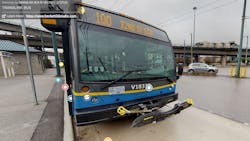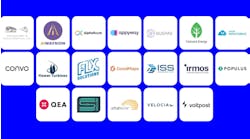A series of online tools designed to help people of all abilities, including those on the autism spectrum, confidently and independently utilize TransLink’s system have been developed by the agency.
The tools include an interactive 360-degree virtual tour of a TransLink bus and eight educational videos about how to use transit throughout Metro Vancouver.
The tools are designed to be used by people who may not be comfortable independently boarding transit. This could include those with a cognitive disability or people who are uncomfortable asking for transit help in English.
“TransLink is committed to making transit as accessible as possible for everyone to use,” said TransLink CEO Kevin Desmond. “We want everyone to feel confident in their ability to use transit, including those on the autism spectrum. We’re always looking at creative ways to help our customers seamlessly travel throughout the region.”
Users of the virtual bus tool will be able to practice boarding a bus through virtual reality, on a desktop computer or on a mobile device. Designed by Beckett 3D Studio in partnership with AutismBC, the tour contains information about each aspect of a TransLink bus with explanations, photos and links to useful resources built in.
“This bus tool provides a detailed visual layout of everything that you would encounter when you board a bus,” said AutismBC Program Ambassador Jake Anthony. “We believe this tool will be helpful for individuals on the autism spectrum who might get anxious not knowing what a new experience will be like. Going over this tool before a bus trip should help individuals of all diverse abilities throughout Metro Vancouver feel more secure, confident, and safe. “
In conjunction with the virtual bus tour, TransLink is releasing eight educational videos detailing how to:
- Use Compass cards.
- Plan a transit trip.
- Request assistance while on transit.
- Travel on different modes TransLink offers.
Made with support from the Wavefront Centre and social service agency S.U.C.C.E.S.S, the videos are offered in English with American Sign Language, Cantonese, French, Mandarin, Punjabi and in English with described video.
These tools are part of a suite of resources offered by the Travel Training Program with Access Transit. The program works in partnership with seniors and disability stakeholder groups in the community to support customers with all abilities to travel on our accessible transit system.



